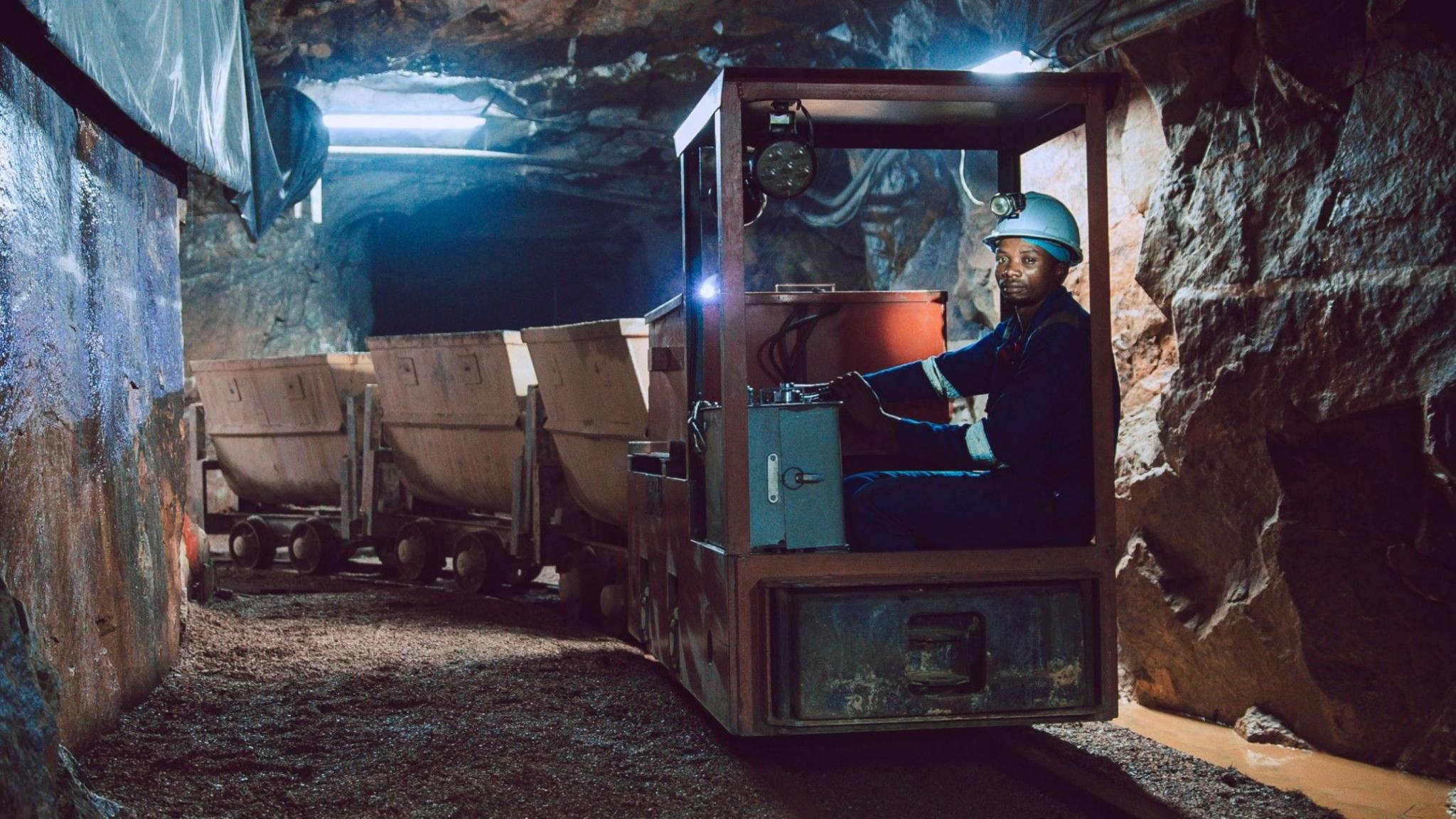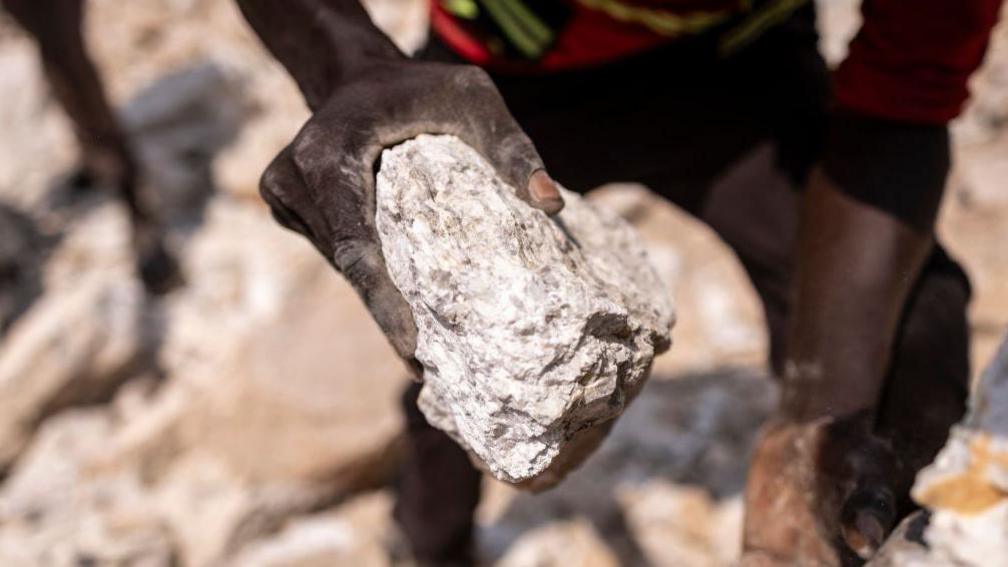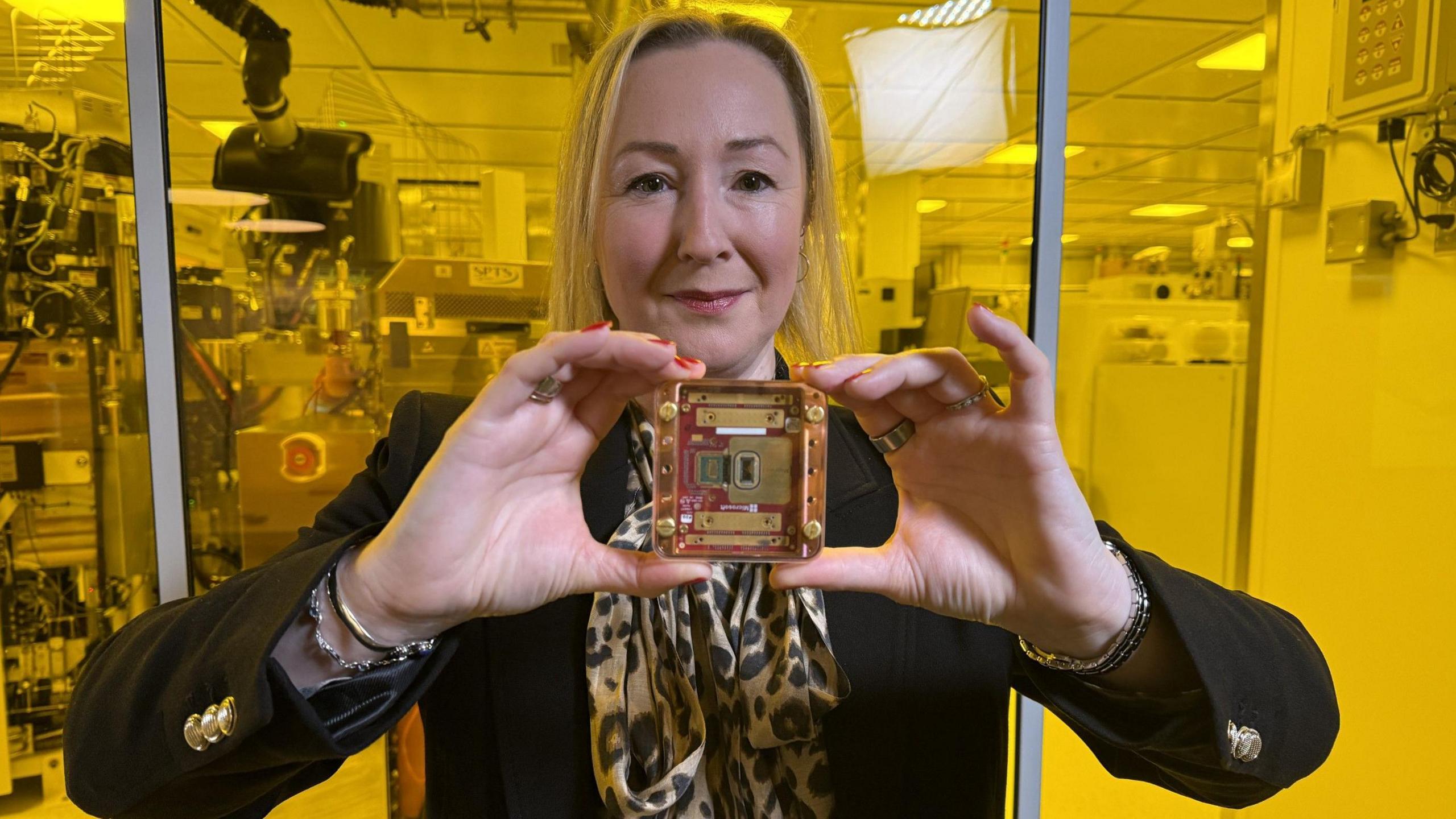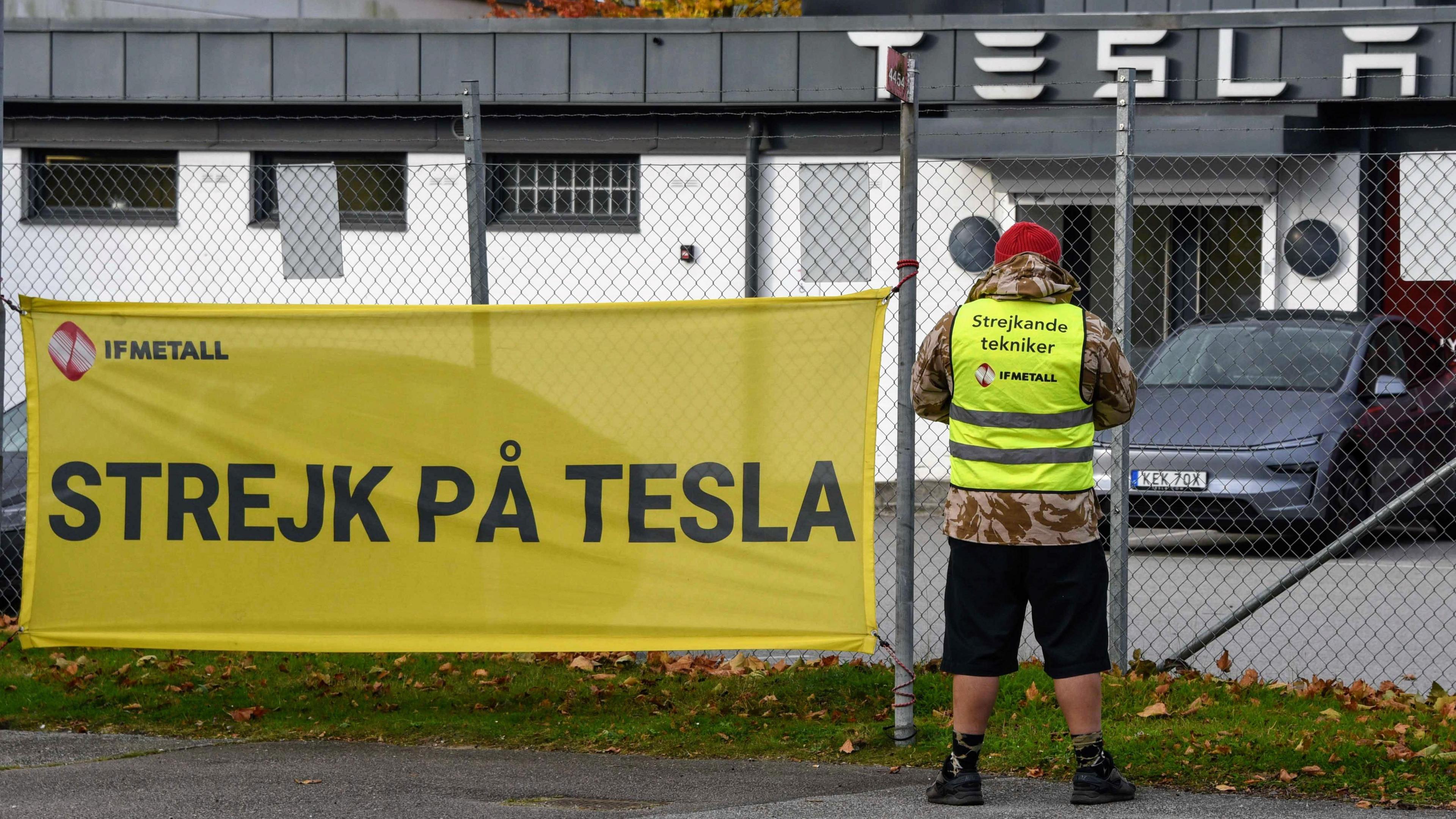How the US overtook China as Africa's biggest foreign investor

- Published
You probably don't give much thought to the device that you're reading this article on, as long as it looks good and keeps working.
But the elements that power and run it are the subject of an escalating struggle between the world's two biggest economies - the US and China - with African countries in the eye of the storm.
The African continent is rich in critical minerals and metals - like lithium, rare earths, cobalt and tungsten - which are vital to making and running our personal tech. Such materials are also essential for everything from electric vehicles, to AI data centres, and weapon systems.
China has long been the biggest player, external in the global market for critical minerals and metals. It has significant reserves at home, and access to supplies from overseas thanks to major investment in foreign mining operations - particularly in Africa.
Beijing has also built up a dominant position when it comes to processing global supplies, and it has rattled the US with the threat of curbing exports. That's lent added urgency to US moves to increase its access to critical minerals and metals, with African reserves seen as key to that mission.
This is so much the case that the US has actually quietly overtaken China as the biggest foreign direct investor in Africa, according to the latest annual figures., external The US invested $7.8bn (£6bn) across Africa in 2023, compared with $4bn by China, according to the China Africa Research Initiative of Johns Hopkins University, which accessed official data.
It marks the first time since 2012 that the US had regained the lead.
US and Australia sign rare earths deal to counter China's dominance
- Published21 October
China tightens export rules for crucial rare earths
- Published9 October
This American investment is being led by a government agency called the US International Development Finance Corporation (DFC). This was set up in 2019 during President Trump's first term of office, and it is not shy about saying that its mission is to take on Beijing. The DFC says on its website that it was established as a means of "countering China's presence in strategic regions"., external
What does this investment mean for African firms and countries who are beneficiaries?
Last year Rwandan mining company Trinity Metals secured a $3.9m grant, external from the DFC to help develop the three mines that it owns in the country, producing tin, tantalum and tungsten.
"The US government has been very supportive of what we've been doing, to look at bringing that supply chain directly to the United States," says company chairman Shawn McCormick.
Trinity now sends tungsten from Rwanda to a processing plant in Pennsylvania. It has also struck a deal to send Rwandan tin to a smelter in Pennsylvania.
Mr McCormick denies that the funding from Washington influenced the company's decision to send supplies to the US.
"This was not the US government who said to the CEO and I 'could you please get that tungsten to America?' It's our decision as players in the commercial market."
Trinity is 5% owned by the Rwandan government, and Irish critical minerals investment firm TechMet is also a shareholder.
Mr McCormick adds that while some mining operations in Africa can use untrained workers operating in dangerous conditions, Trinity follows the highest standards.
"We have shown that there is a way to produce these materials in a conflict free, child labour free way that is professionalised, and that's paying taxes and respecting the community and the environment, creating jobs and opportunity".

The African continent is home to vast mineral wealth
Sepo Haihambo is an economist, and former executive at banking group FNB Namibia. She says African nations must be assertive in standing up for their national interests when negotiating with US entities, and shouldn't expect any favours.
"To expect [the Americans] to show up and negotiate and propose clauses that are in Africa's best interests on Africa's behalf would be unrealistic," she says. "So Africa really needs to prepare itself for these engagements and be really clear on what [outcomes] it wants."
Ms Haihambo adds that African governments should expand away from simple cash for minerals deals. "There's an opportunity to look at different frameworks instead," she says.
"You could look at production sharing agreements, joint venture models, local equity participation. Ultimately that then creates an opportunity for African countries to create, maybe, sovereign wealth funds that can then invest into developmental areas like education, healthcare etc."
She also wants to see more processing of minerals and metals done in Africa, rather than simply exporting the ores overseas, as this would be more financially lucrative.

Economist Sepo Haihambo says that African nations must be careful to secure good deals with the US
One US company that is building a critical minerals and metals refinery in Africa is ReElement Africa, a subsidiary of US group American Resources. ReElement Africa is constructing the refinery, external in South Africa's Gauteng province.
"It was extremely rewarding to realise that we could partner with countries in Africa to put refining facilities alongside the resource in the mining projects, so you could actually capture more value, upskill labour, build an economy around that zone, and lay the foundation for further industrial development," says Ben Kincaid, CEO of ReElement Africa.
However, Prof Lee Branstetter, an international economist at Carnegie Mellon University in Pittsburgh, says the US has missed a trick.
He argues that Trump's trade tariffs on African nations have reduced enthusiasm for the US across the continent at a time when some in sub-Saharan African nations have complained that Chinese investment is not benefiting local populations enough.
"Had the current administration not indiscriminately slapped tariffs on large numbers of African countries for no apparent reason, the United States would probably have been in a better position to benefit from African disaffection with Chinese projects," says Prof Branstetter.
Going forward, the US and China may also see increased competition in Africa from others, adds Ms Haihambo. She points to increased interest in the continent by countries such as Brazil, India and Japan.
Read more global business stories
- Published6 November

- Published30 October

- Published26 October

- Published13 October
